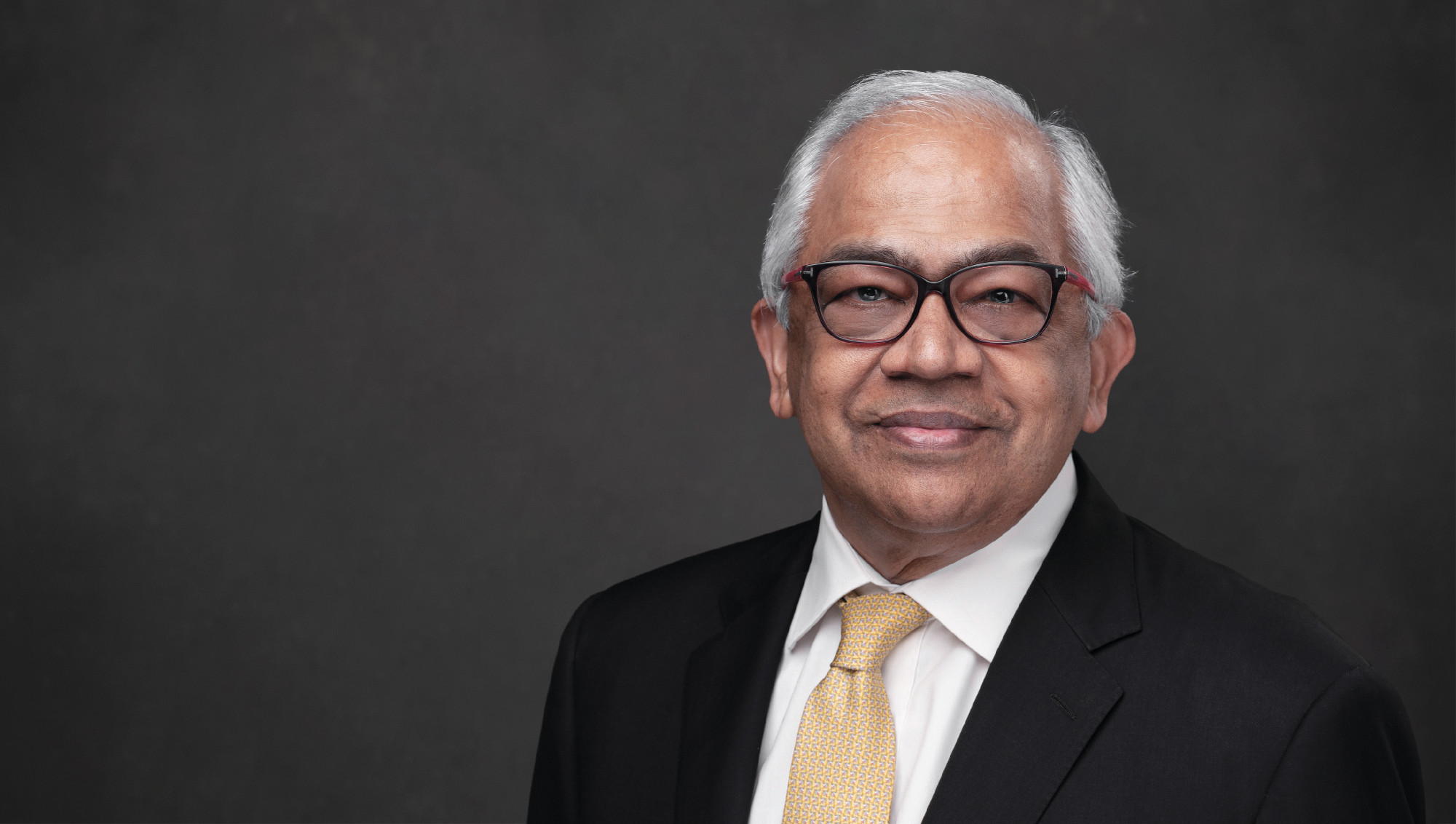Audit and Risk Committee report
Committee chair’s statement

Ravi Rajagopal
Chair
1
This year we continued to oversee and ensure the integrity of financial information and the effectiveness of risk management and internal control at Airtel Africa.
2
Committee membership and attendance | Member since | Meetings attended/held |
|---|---|---|
Ravi Rajagopal Chair | April 2019 | 9/9 |
Andy Green | April 2019 | 9/9 |
Annika Poutiainen | April 2019 | 9/9 |
Awuneba Ajumogobia | October 2020 | 9/9 |
I’m pleased to present this committee report which outlines our activities and focus areas for the year. Our members – all independent non-executive directors with financial and industry expertise – are unchanged. This year we oversaw and ensured the integrity of financial information and the effectiveness of risk management and internal control at Airtel Africa.
During the year I was able, as part of my annual schedule of market visits, to meet our management and finance teams in DRC and Congo B to witness and assess the disciplines around controls and risk management. I also met those based in the back office in Delhi, India to better understand finance controls, the monthly closing processes and revenue assurance. This direct interaction provided valuable insights and informed the work of the committee.
Key focus areas
The Group continued to experience macroeconomic challenges across geographies which directly affect our committee’s work. We reviewed management’s presentations on the business and ensured there were appropriate disclosures in the financial statements. These included FX movements in some of our markets, the presentation of exceptional items relating to FX and the balance of reporting between constant and reported currency.
This report highlights our review of Airtel Africa’s internal control, including the three lines of defence mechanism, and the focus on mobile money internal control ahead of the planned Airtel Money business IPO.
In view of the 2024 FRC’s Corporate Governance Code changes, we received updates on Provision 29 requirements from management and their applicability to Airtel Africa, including the steps needed to achieve full compliance. Our committee reviewed and was satisfied with the three lines of defence mechanism on our internal controls, the strict adherence to the self-validation processes, the role of internal audit, and external independent assurances. As part of the requirement to comply with the Nigerian SEC requirements related to internal control (including Board attestation), we also identified material controls to manage financial reporting risks and reviewed planned improvements in the design of controls by standardising operating processes to improve the operating effectiveness, execution and monitoring of these controls across the organisation. To maintain and improve our knowledge, our committee also took part in dedicated sessions with Deloitte on fraud risks and the requirements of Provision 29.
The Group continued to assess processes for identifying key controls and the results of the OpCo-related scoring framework through internal audit validation – these were regularly reported to our committee. We also continued to look in depth at certain aspects of the control environment, particularly the presumed risk of management override of controls and those relating to fraud management, IT security and cyber risk.
We increased our focus on mobile money internal control and compliance. This reflected the increasing cyber threat and risk from third party interfaces to the integrity of financial transactions. With the planned listing of the mobile money business the robustness of controls and risk management of a new standalone listed entity assumes even more importance. Our work has included assessing risk management, improving controls and tracking compliance against regulations applying to mobile money businesses in all our markets and arising from central bank licences. Strengthening the IT systems and increasing resilience of application software has been a core part of our work this year.
Our committee also continued with its deep dives into the monitoring and reporting of Internal Control over Financial Reporting (ICOFR) and non-ICOFR key controls to strengthen compliance and monitoring for mobile money.
Over the past few years, while waiting on the finalisation of regulatory reforms governing internal control, we’ve made significant progress in enhancing our internal controls by voluntarily formalising the implementation of an ICOFR framework using the Internal Control Integrated Framework (2013) issued by the Committee of Sponsoring Organizations of the Treadway Commission (COSO).
Improvements to the ICOFR framework include a robust risk assessment process to identify potential risks, including management override and fraud, the continuous evaluation of controls, and enhancements in the design and effectiveness of controls. Ongoing monitoring, independent testing, and reporting are now in place. Deloitte maintained a controls reliance approach during the external financial statement audit.
This year, the work of the committee emphasised the importance of internal audit in focusing on risk management, compliance and fraud prevention. The internal audit team, supported by EY, provided assurance on the effectiveness of internal controls, with a focus on high-risk processes and the potential for automation. Looking ahead, our committee plans to continue enhancing internal control in line with the new UK Corporate Governance Code.
We also reviewed Airtel Africa’s principal and emerging risks. There were no changes to principal risks during the year. See our Principal risks and mitigation section for the significant judgements made in connection with these risks.
During the year, we focused on several key matters of financial reporting. We considered the full year and half year results and the Q1'25 and Q3'25 trading updates. We looked closely at accounting policies and practices as well as judgements and disclosures on key accounting matters: the significant devaluation of the Nigerian naira, hyperinflation accounting in Malawi, the accounting treatment for the renewed tower lease agreements with American Tower Corporation (ATC) across four OpCos, and the accounting for the share buy-back. In line with the Group policy on exceptional items, our committee reviewed the updated policy and agreed that the impact of currency devaluations for Nigeria and Tanzania and provision for certain legal matters should be classified as exceptional items given the impact on financial statements to enhance comparability of underlying operations over time.
We also placed particular emphasis on reviewing our IT infrastructure and reviewed at each meeting the work being undertaken to upgrade systems, reduce outages and prepare disaster recovery plans.
The report details how we engaged with Deloitte, the Group’s external auditor, and managed non-audit services to ensure auditor independence.
Our schedule of meetings
In addition to scheduled committee meetings, we met regularly independently of management, with both external and internal auditors and are satisfied that neither is being unduly influenced by management. I also hold regular meetings with our CFO and other members of management to better understand the issues that need discussion at committee meetings. As committee chair, I regularly engage with key stakeholders on committee work, including Group Internal Assurance, senior management and our external auditor.
Our committee report is structured into five parts:
- Part 1 – Our work during the year
- Part 2 – Accounting and financial reporting issues and our response
- Part 3 – Risk management and internal controls
- Part 4 – External auditors
- Part 5 – Finance Committee
Throughout the year, we continued to operate with openness and transparency, and a spirit of robust challenge when necessary, to make sure our shareholders and other stakeholders are protected.
Future focus
Over 2025/26 our committee will continue to monitor macroeconomic conditions, including currency devaluations and hyperinflation, affecting the Group’s performance and assets. We will continue to oversee the development of plans to meet the requirements of the new UK Corporate Governance Code, including an effectiveness review and certification of internal control.
We will also continue to focus on the control and compliance environment for Airtel Money, strengthening compliance through training, process improvements, automation, and robust consequence management to ensure accountability.
I’d like to thank the management team at Airtel Africa and each of the committee members for their support and contribution during the year. I’d also like to express my appreciation to our outgoing CFO, Jaideep Paul, who is retiring this year, for guiding the company through its IPO in 2019 and his unparalleled dedication and commitment in leading the finance function. This has laid a solid foundation for his successor, Kamal Dua, who will become CFO in July.
I welcome questions from shareholders about this committee’s activities.
To discuss any aspect of this report, please contact me through our company secretary, Simon O’Hara. For contact details, see General shareholders’ information. I will also be attending the 2025 AGM and look forward to the opportunity to meet and speak with you there.
Ravi Rajagopal
Chair, Audit and Risk Committee
7 May 2025



